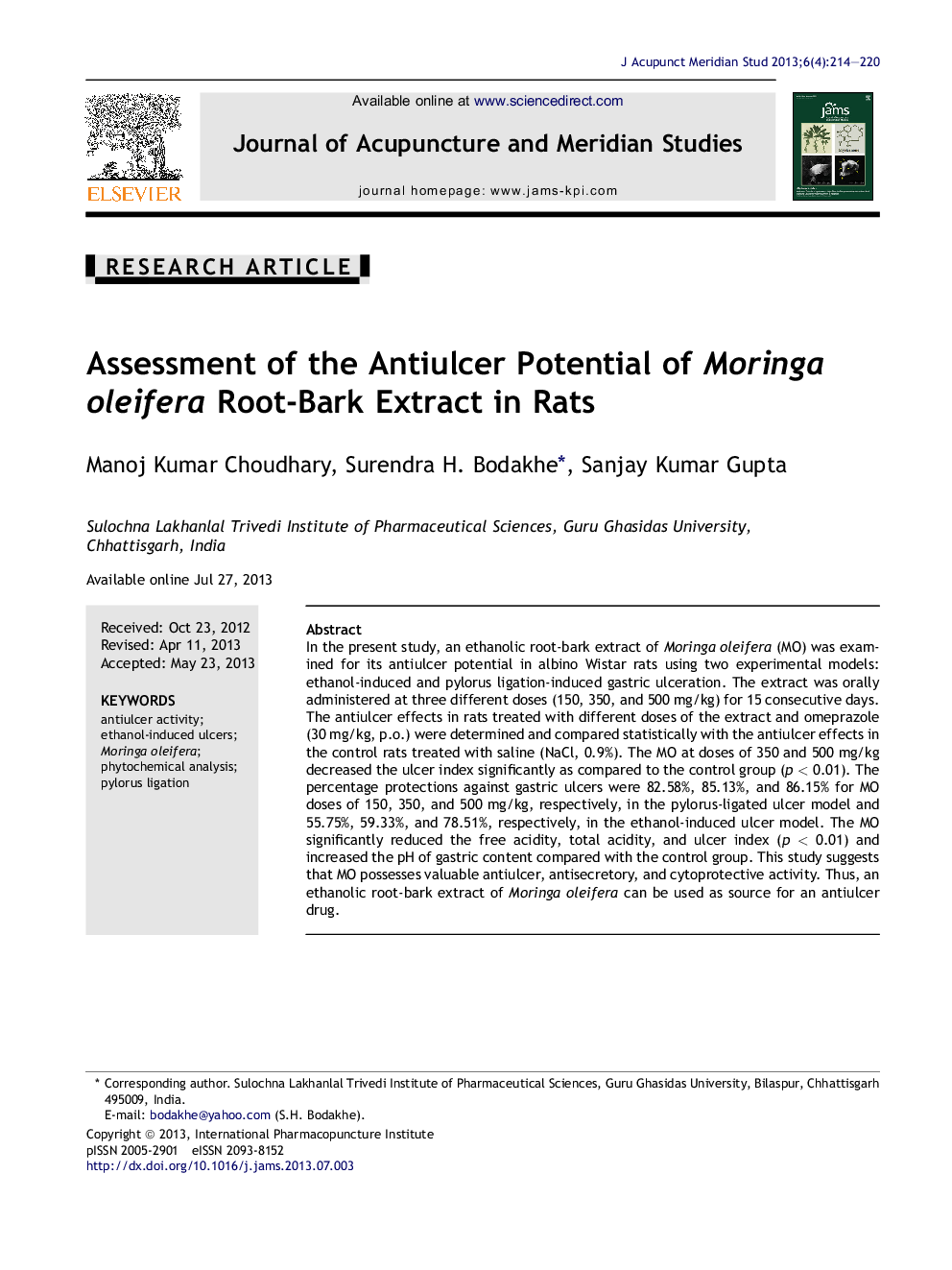| Article ID | Journal | Published Year | Pages | File Type |
|---|---|---|---|---|
| 3098839 | Journal of Acupuncture and Meridian Studies | 2013 | 7 Pages |
In the present study, an ethanolic root-bark extract of Moringa oleifera (MO) was examined for its antiulcer potential in albino Wistar rats using two experimental models: ethanol-induced and pylorus ligation-induced gastric ulceration. The extract was orally administered at three different doses (150, 350, and 500 mg/kg) for 15 consecutive days. The antiulcer effects in rats treated with different doses of the extract and omeprazole (30 mg/kg, p.o.) were determined and compared statistically with the antiulcer effects in the control rats treated with saline (NaCl, 0.9%). The MO at doses of 350 and 500 mg/kg decreased the ulcer index significantly as compared to the control group (p < 0.01). The percentage protections against gastric ulcers were 82.58%, 85.13%, and 86.15% for MO doses of 150, 350, and 500 mg/kg, respectively, in the pylorus-ligated ulcer model and 55.75%, 59.33%, and 78.51%, respectively, in the ethanol-induced ulcer model. The MO significantly reduced the free acidity, total acidity, and ulcer index (p < 0.01) and increased the pH of gastric content compared with the control group. This study suggests that MO possesses valuable antiulcer, antisecretory, and cytoprotective activity. Thus, an ethanolic root-bark extract of Moringa oleifera can be used as source for an antiulcer drug.
